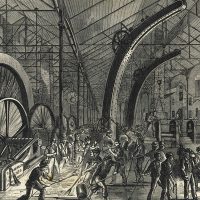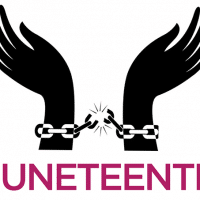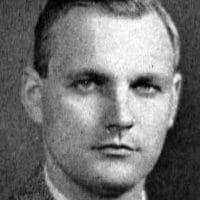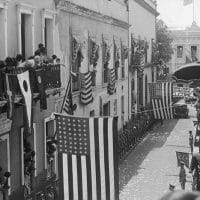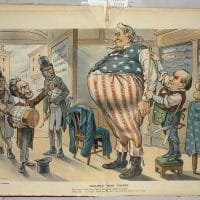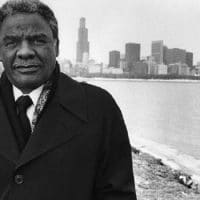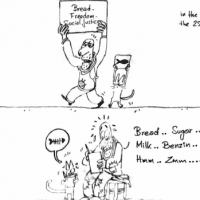-
Why the United States did not demonstrate the bomb’s power, ahead of Hiroshima
Would non-use at the end of a brutal total war have created a taboo against the use of nuclear weapons as strong as resulted from the demonstrated horror of their effects against the two Japanese cities? Perhaps not.
-
In retrospect: Das Kapital
The book’s impact on economics, politics and current affairs has been formidable, and aspects of Marx’s thinking have permeated areas of scientific research as disparate as robotics and evolutionary theory.
-
Juneteenth: Time for liberation now
Juneteenth is not just a day in the park. It memorializes the most significant event in African-American history, what W.E.B. Du Bois in the magnificent “Black Reconstruction in America, 1860-1880” calls “the coming of the Lord,” the destruction of slavery.
-
José Carlos Mariátegui: 87 years later
Mariátegui’s funeral was one of the largest processions of workers ever seen in the streets of Lima, Peru, but in the U.S. his death was hardly noticed.
-
Final examination given in the class “Economics of Socialism,” taught by Paul Sweezy in 1940
During my recent archival visit to Harvard, I was able to copy a magnificent trove of final examinations in economics (up through 1949…there is much more going forward, but I had to move on). Now I begin the curatorial work of pairing some of those examinations to course materials I have posted earlier and where the exam […]
-
‘What Was Done’
This short satirical film from Bella Caledonia (by Edinburgh filmmaker Bonnie Prince Bob) was originally banned by YouTube when it was released three weeks ago (it has since returned). As far as we are concerned it is a brilliant piece of propaganda that should go viral once again.
-
Puerto Rico’s $123 Billion Bankruptcy Is the Cost of U.S. Colonialism
Last week Puerto Rico officially became the largest bankruptcy case in the history of the American public bond market. On May 3, a fiscal control board imposed on the island’s government by Washington less than year ago suddenly announced that the Puerto Rico’s economic crisis “has reached a breaking point.” The board asked for the immediate […]
-
The Graveyard of Progressive Social Movements
When first encountering the “Impeach Bush” movement in 2007 I responded, almost flippantly, “why not impeach the system that gave us Bush?” Otherwise, I said, “we risk having someone in the White House who’ll make us long for Bush.” If prescient, my response was admittedly formulaic and evidentially deficient.
-
The Much-Maligned Views of Rania Khalek on Syria
The people that have written about Rania [Khalek] publicly range from truly creepy stalkers to left academics who fired off a quick set of libels and then expressed dismay at the responses to them. But other than people talking about her, it is in fact rather difficult to find any sources for these “views” of hers that apparently disqualify her to speak or publish on any topic.
-
Inconsistency, Illegality, and Judge Gorsuch
Donald Trump has nominated Neil Gorsuch, a judge of the U.S. Court of Appeals for the Tenth Circuit, to be an Associate Justice of the Supreme Court. The Senate should not confirm Judge Gorsuch. This post gives one cardinal reason for rejecting the nomination.
-
Politics of the Streets Meets the Politics of the Suites
Nearly three decades after his untimely death, Harold Washington’s time as mayor of Chicago offers important political lessons for current progressive activists and organizers. While he ran for office as a Democrat, Washington was, in effect, drafted by a grassroots movement that emerged from the city’s neighborhoods.… What emerged from Washington’s run was a two-way process bringing together the “politics of the suites” and the “politics of the streets.”
-
Remembering Che on the 50th anniversary of his assassination
2017 is the 50th anniversary of the CIA-ordered assassination of Che Guevara. In light of a recent upsurge in denunciations of Che and the Cuban Revolution, it is important to separate fact from fiction. Here are 5 important points to take into account, all in historical context, drawn from countless reliable sources, especially the References at the end of this article.
-
Egypt 2016: Who was worse, Mubarak, Morsi or Sisi?
2016 was a very difficult year for the Egyptians. Most—both the average man and the political caste—even say it was / is the worst year in the country’s history.
Attacking the “revolution” or uprising of 2011, its aims, symbols and representatives, has no longer become an excess of some “Mubarakists”, but obviously, the policy of the regime. This policy is encouraged by the fact that more and more Egyptians are longing to Mubarak’s time. They blame the 2011 revolution for their misery and not the policies of the regime.
-
Bears and Musical Chairs
Those who, like me, grew up with the writings of A. A. Milne may recall not just Winnie the Pooh but two other little bears and how “one of them was Bad and the other was Good” and kept getting better. In a way, that recalls German politics. The goodie in next September’s elections, it […]
-
Taking Action: Understanding History, Reaching Out
Racism, sexism, homophobia, xenophobia, repression, and the other evils that have been spotlighted by the recent election did not arise full-blown from the Trump campaign. They all trace deep roots in American society; they are brought now to the surface by demagogy. The point of my last several posts has been that we could see […]
-
The Lawyers’ Job Now — History and Strategy
Donald Trump and his allies have announced their agenda. It includes torture, denial of basic human rights, military action that violates the laws of war, racial injustice, misogyny, and xenophobia. What role and responsibility do we have? I am a lawyer, teacher, and writer. So I speak to those in my profession and those preparing […]
-
Fictionalizing Radical Activism of the 1960s, a review of Bryan Burrough’s book, Days of Rage
[G]iven the many ways in which crime has been understood through race and racist stereotypes, the stock characterizations in true crime stories have ever more damaging implications. Such distortions are more than bad history. They are toxic justifications for continued police brutality, mass incarceration, and the surveillance state in the name of “fighting crime.”… This is what makes Bryan Burrough’s Days of Rage not just disappointing but ultimately dangerous. Its genre is history as “true crime.” Burrough chronicles six revolutionary underground organizations from the late 1960s to the mid-1980s: the Weather Underground (WU), which emerged out of Students for a Democratic Society (SDS); the Black Liberation Army (BLA), an offshoot of the Black Panther Party; the Symbionese Liberation Army (SLA), whose best known act was kidnapping heiress Patty Hearst; the New World Liberation Front, a curious sequel of sorts to the SLA; the Puerto Rican independence group Fuerzas Armadas de Liberación Nacional; and a New England group of working-class white radicals that ultimately called itself the United Freedom Front.
-
Our right to be Marxist-Leninists
The 70th anniversary of the Great Patriotic War will be commemorated the day after tomorrow, May 9. Given the time difference, while I write these lines, the soldiers and officials of the Army of the Russian Federation, full of pride, will be parading through Moscow’s Red Square with their characteristic quick, military steps.… Lenin was a brilliant revolutionary strategist who did not hesitate in assuming the ideas of Marx and implementing them in an immense and only partly industrialized country, whose proletariat party became the most radical and courageous on the planet in the wake of the greatest slaughter that capitalism had caused in the world, where for the first time tanks, automatic weapons, aviation and poison gases made an appearance in wars, and even a legendary cannon capable of launching a heavy projectile more than 100 kilometers made its presence felt in the bloody conflict.
-
A History of a Counter-Revolution
Gerald Horne. The Counter-Revolution of 1776: Slave Resistance and the Origins of the United States of America. NYU Press, 2014. In the conventional, celebratory liberal historical narrative about the Founding Fathers, the post-revolutionary persistence of slavery in the United States, along with women’s lack of essential political and legal rights, has long been regarded as […]


